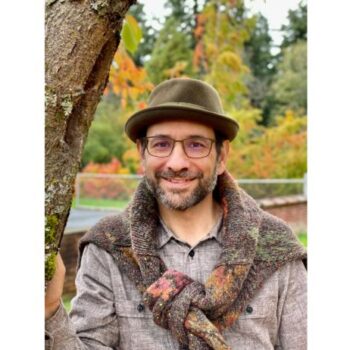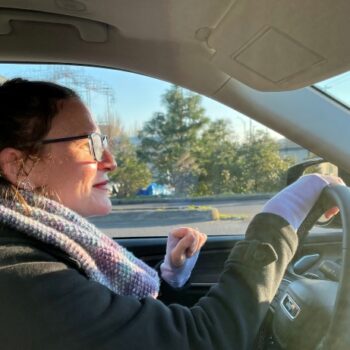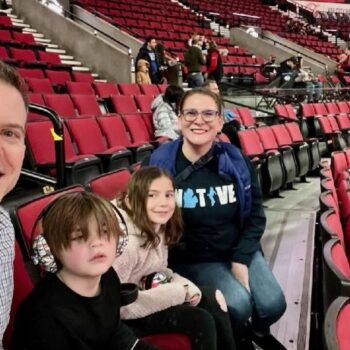There’s a powerful line of connection between loneliness and solitude, with one major difference. Solitude tends to be an intentional act by which we allow ourselves space to befriend ourselves, while loneliness is the emotional state that arises when our solitude feels uncomfortable. Yet we need both to teach us.
This week’s Torah portion reminds us that we are to find the balance between the frustrations of changes in plans (or detours, if you will) and the purpose in creating a community that works for everyone.
The last few years have certainly highlighted the differences between communal space and personal space, and community needs versus individual needs. Judaism is a religion of both communal gathering and connection as well as individual prayer. This balance is part of what makes us the people we are.
For our family, Portland is where we’ve lived the longest collectively, and yet, plenty of Jewish families have been here for generations, so we don’t feel like natives in comparison. So when does that milestone moment occur? The Torah anticipates this question as the Israelites continue their journey toward a land they’ve not inhabited in multiple generations.
This past week, a dear friend of mine who is Muslim reminded me that this Shabbat coincides with the Islamic holiday of Ashura. For Sunni Muslims, Ashura commemorates the day that Musa (Moses) parted the Red Sea for the Israelites, using a staff that Allah (God) provided him, allowing the Israelites to escape their bondage to Pharaoh. Many Jews are probably unaware of when and how narratives from the Torah appear in the Koran, yet there are many such instances.
As Moses moves towards the end of his tenure as the leader of the Israelite nation, it’s clear that he is devoted to doing what is right for the people, but the bigger message here is that leaders, like Moses, do more than inspire or rally or blaze a trail. They are willing to accept responsibility, for better or worse.
The Talmud has a phrase, “anshei imrei…: People say.” It is one of the ways our Sages brought then-contemporary wisdom or folk sayings into their higher-level discussions. Borrowing from their approach, there’s something fascinating about juxtaposing our culture’s paradoxical statements. For example, in our milieu, the older statement, “God is in the details,” morphed more recently into, “the devil is in the details.”








